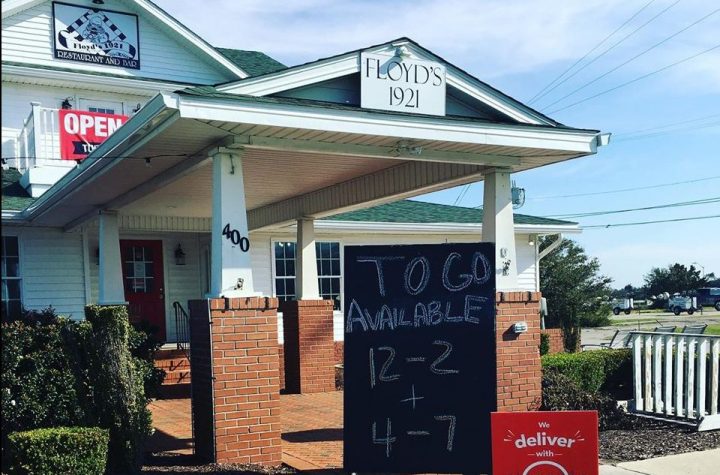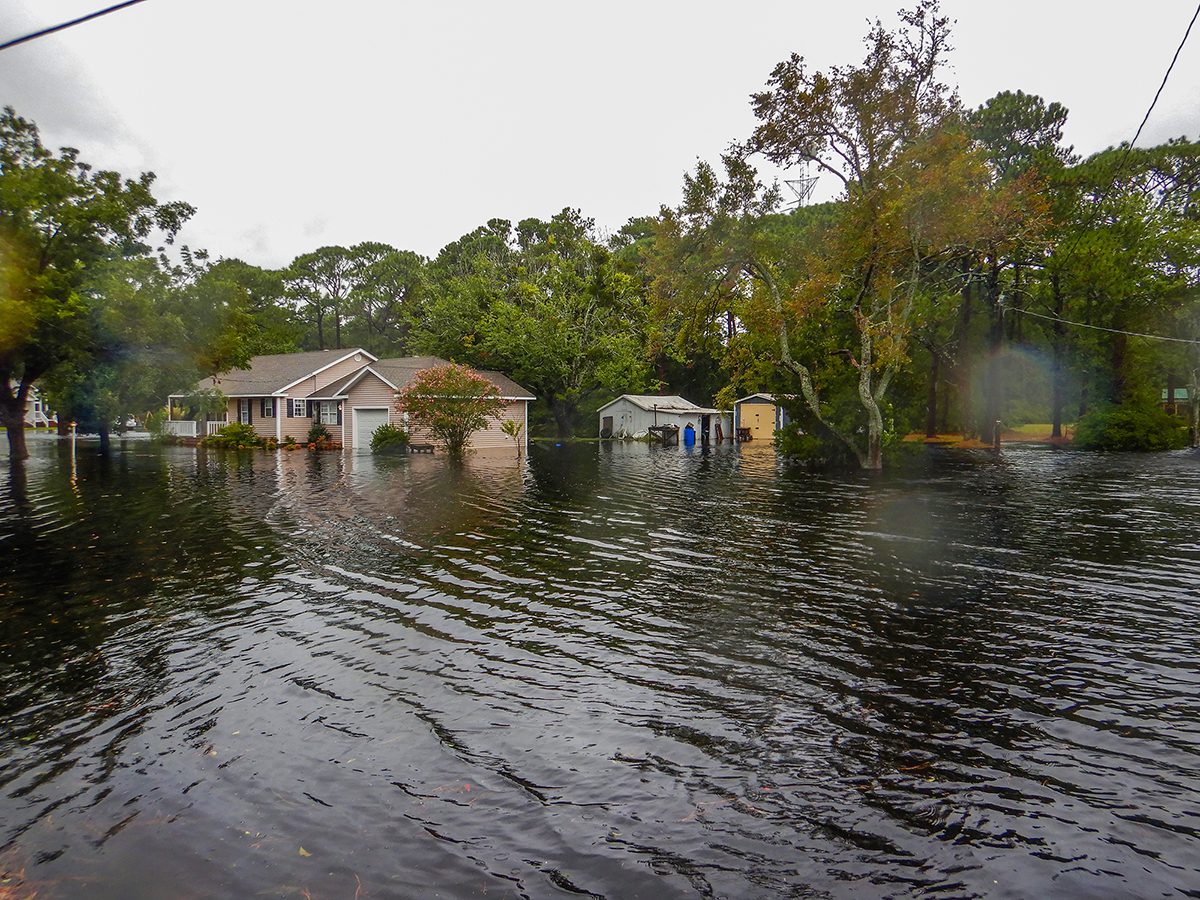
With vacation rentals shuttered and restaurants closed or open for takeout only, local governments in tourism-dependent coastal areas are bracing for bleak options as they begin to draft new budgets.
By law, North Carolina counties and municipalities are required to adopt new budgets by July 1, the beginning of a new fiscal year. None is allowed to run deficits, and borrowing is limited under a system put in place after a wave of local government failures during the 1930s.
Sponsor Spotlight
That system and the ability for public sector spending to prop up teetering economies and deal with widespread unemployment will be tested in ways they haven’t been since.
In Raleigh, legislative hearings on the impact of the coronavirus have featured a litany of losses across all sectors of the economy, but none as quickly or deeply felt than in the areas of food service, hospitality and travel.
On Tuesday, members of the Economic Support Working Group of the House Select Committee on COVID-19, heard pleas for immediate state action from industry representatives.
“The biggest business challenge that I am hearing from restaurants and hotels is that they are cash strapped today,” Lynn Minges, president and CEO of the North Carolina Restaurant and Lodging Association, told working group members during a teleconference Tuesday. Some businesses have resorted to making payroll using credit cards, she said, and all are faced with ongoing bills, leases and debt service. Adding to the urgency, she said, is that many small businesses are finding that there are pandemic riders on business interruption insurance.
Sponsor Spotlight
Minges said help is coming from recently passed federal relief bills, but that will take time to arrive.
“The application process is long and cumbersome and we’re still waiting on guidance from the federal government. There are loan programs these folks can apply for, but they need cash in their pockets today. They cannot make their payments today. They cannot make their payroll today. They are really struggling.”
The association estimates that 350,000 of the state’s roughly 500,000 restaurant jobs and 23,000 of the 80,000 hotel jobs have been lost so far. It’s calling for a $100 million state emergency grant for hospitality businesses that would provide one-time grants up to $25,000 for smaller restaurants and $50,000 for larger restaurants and hotels to temporarily cover rent, utilities, payrolls and vendors. The association is also asking for the state to delay sales tax collections and other tax payments.
That would especially help restaurants trying to stay open on a limited basis to make payrolls and keep vendors paid, Minges said.
At Floyd’s 1921 Restaurant & Catering in downtown Morehead City, a dining room and patio that can hold up to 250 patrons is quiet, although the kitchen remains open.
Since the statewide ban on dine-in service began March 17, a small staff assembles there six days a week to prepare dozens of meals for carryout customers.
Restaurant manager Jason Eure said the special takeout menu was already in the works when the statewide order was announced. Even though they had a head start, he said, Floyd’s had to quickly adapt from being a dinner destination to a carryout food service.
“Eating is more of a necessity than a luxury at this point in time,” he said. The restaurant has always focused on local customers and wanted keep serving, but from a business perspective, Eure said it was like going from being a full-service restaurant to operating a food truck.
“The bills are still coming, as far as the mortgage, the power, all that kind of stuff, but you’re not able to utilize the basic square footage.”
Eure said it’s not all doom and gloom. The community has been supportive, he said, and there’s enough business to keep a skeleton staff of 10 employed.
But the front-of-house staff, which can grow to around 60 employees at the height of the summer season, is idle and those employees have started collecting unemployment. There’s also a lot of uncertainty about what’s ahead, especially how it will affect the typically busy summer season.
“We’ve all come to the reality that it’s going to go longer than we want it to,” Eure said. “We’re on the cusp of summer basically. Even if all is golden at the end of April, the public is going to still be gun shy about going out.”
Preparing for an economic hit
At Tuesday’s hearings, legislators also received warnings about how business closures and precipitous drops in sales and occupancy tax revenues would affect the bottom line for the hundreds of communities in the state that rely on travel and tourism.
Erin Wynia, chief legislative counsel for the North Carolina League of Municipalities, told members of the select committee working on the impact to state and local government that the hit to small businesses would have a big effect on local government.
Wynia said sales tax distributions, which typically make up nearly a quarter of the municipal revenue stream, are expected to drop considerably. Occupancy taxes, which take in roughly $300 million for the 63 local governments that have them in place, will take an even bigger hit. Those funds usually go to support tourism advertising and marketing but are also used for beach renourishment and dune repairs and facilities such as convention centers and stadiums.
“Nearly all of those funds will dry up for the time that the economic crisis is happening,” Wynia said.
Any major drop in commercial and industrial water use, which accounts for almost half of water system revenues, is also putting pressure on local governments, she said.
“Those revenues are sharply declining along with economic activity and that will be something to reckon with in the future.”
With the bulk of municipal budgets dedicated to public safety and transportation, Wynia said, cuts in those areas are more likely.
“If revenues decline to where we fear they might, this is where the cuts will take place,” she said. “There’s not a lot of bloat in these budgets already and it will be very difficult for local governments to continue providing services they’ve been providing through the crisis.”
Wynia said that since sales tax distributions lag collections, the loses in March will start showing up in lower distribution payments in June.
Washington Mayor Mac Hodges said he’s expecting to see revenues fall when the sales tax numbers are reported, but the Beaufort County city is in good enough financial shape to ride out the crisis.
“It just depends on how this thing drags out,” Hodges said in an interview Wednesday. “If it’s two or three more weeks, we’ll probably survive it OK.”
A month or more would be difficult, he said, but with a growing tax base and a built-up fund balance, the city budget should be OK in the long run. “Ours can take a beating,” he said. “Others may not be able to.”
The worry, he said, is if the shutdown extends further into summer and affects summer camps, which usually bring a lot of visitors to the area.
In the meantime, Hodges said the city took advantage of the shutdown to move ahead with infrastructure upgrades.
Since most of the businesses along Main Street were forced to close, Hodges said it made sense to go ahead and start tearing up pavement for a major streetscape project.
Local and state leaders must be able to be flexible given how fast things are changing, he said.
“What seems like a good idea today might not be so hot next week,” he said. “That’s just the way this thing is.”







